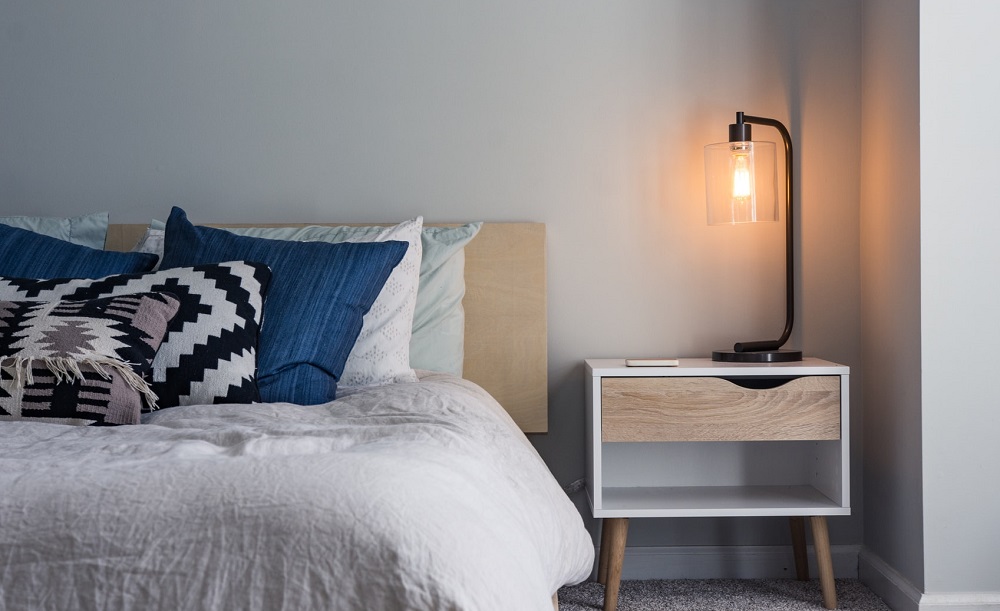
13 Proven Tips That Will Help You Sleep Better at Night
Do you have trouble sleeping? You hit the bed after a long day, and instead of falling into slumber, you keep tossing and turning. At some point in one’s life, falling asleep might become difficult. The factors causing these may be stress, anxiety, illnesses, etc. From bad skin to puffy eyes to migraines to mood changes, and unproductivity, lack of sleep can be detrimental to health. The effect of lack of sleep in the body, and life, in general, cannot be overemphasized.
One of the best ways to increase your productivity and live a good life is to fix one’s sleep. Nothing is worse than having a long and stressful day and then finding it hard to drift off at night.
Regard the following as a checklist on how to sleep better, a list to mentally tick off for better sleep. These are easy steps you can imbibe in your day-to-day life for a good night’s rest. Take them up one after the other and implement them daily. You don’t have to do everything all at once, pick one at a time until they become part of your night routine.
How to Sleep Better at Night
Before Bedtime
1. Reduce Caffeine Intake
Drinks containing caffeine like coffee, soda, etc. keep you alert by stimulating your brain and central nervous system.
Reducing their intake, especially late in the afternoon, can help you sleep better since the stimulating effect would have worn out your body.
2. Eliminate Heavy Food
Eating a large meal or eating very late at night will not only aid weight gain but will also tamper with your bedtime. You might feel uncomfortable or bloated because of the undigested food in your stomach.
It is advisable to eat a full meal early in the evening or eat lightly at night. Avoid midnight snacking.
3. Organize Your Bedroom
A well-arranged room will help promote sleep more than a scattered one. Try putting your bedroom in order before bed and make your bed with fresh bedclothes and pillowcases. A smelly and lumpy bed will not induce sleep but a well laid and clean one will.
4. Reduce Screen Time
One or two hours before you go to bed, ditch the phone, laptop, and TV. However, this might not be easy to do, especially on the phone, since we live practically on our gadgets.
It will be better if we let them go before going to bed so our eyes can be away from the bright light they produce, which affects our sleep.
5. Create a Sleep Schedule
Come up with a time when you will go to bed every day and stick to it. Sleeping at different times might be hurting your sleep as your body cannot keep up with it.
Once your body adjusts to a sleeping schedule, you will naturally fall asleep during that time. Check out how to create a foolproof sleep schedule here.
6. Improve Ventilation to Help You Sleep Better
Before going to bed, air out your room by turning on a fan, or air conditioner or by simply opening up the windows. A hot and stuffy or smelly room will disturb your sleep. It is advisable to get rid of anything that will make your bed space inconvenient.
Tips to Sleep Better During Bedtime
7. Take a Shower or Bath Before Sleep
You should not go to bed with all the sweat and dust from the day. Taking your bath before going to bed will not only clean your body but will also relax and refreshen you.
Make a habit of taking a shower before going, no matter how tired you may be.
8. Wear Comfortable Night Wears
Avoid wearing tight or body-fitted clothes to bed. Endeavor to wear more loose night wears as they will allow easy blood flow and let you sleep better.
9. Try Yoga
Bedtime yoga, along with meditation is one of the best things to do for better sleep as it reduces stress and makes you relaxed enough to sleep. Bedtime yoga poses are easy to do and can be done on the bed.
10. Read a Book
If you are still not feeling relaxed enough to sleep, you can try to read a book. Reading a book can be soothing for some, and for others, it is an instant sleep pill. If you are part of the latter, I recommend putting a book on your bedside table to help you induce sleep.
However, I do not recommend this for avid readers, so you don’t “just one chapter” your way to 3 a.m.
11. Turn Off the Lights (Or Not)
There are different perspectives on this. Some people cannot fall asleep with the lights on, but it is otherwise for some. Whichever way, try to reduce your exposure to harsh or bright light.
You can turn it off altogether or use a lesser intense light like red bulbs. However, you should avoid blue light.
12. Listen to Relaxing Tunes
Determine what is relaxing and soothing to you and play at reduced volume to help you fall asleep.
13. Have Good Thoughts
The type of things you occupy your mind with will determine how well you will sleep. Thinking about sad and bad things can raise your alertness and will keep you up from sleeping. While having good and happy thoughts will lure you to sleep. Save all the worrying for the next day and get to bed.
A good night’s sleep will give you a fresh start to tackle life problems the next day.
Conclusion
Lastly, sleeping pills are not a good option for sleep as they can be addictive and detrimental to health. Avoid these as much as possible unless a doctor prescribes them. If your sleeplessness persists, you should seek medical attention.
